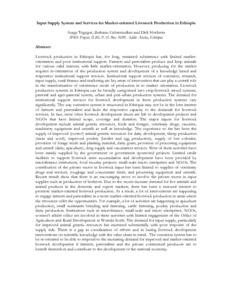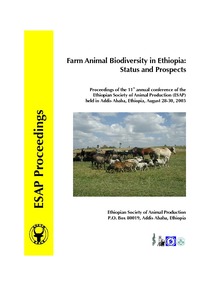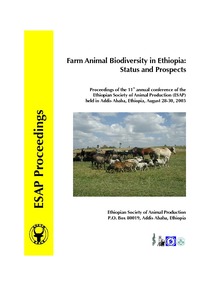Location
Ethiopian Society of Animal Production (ESAP) is an Ethiopian Resident Society of professionals of animal production and related fields. ESAP is a multifaceted platform and knowledge hub of animal scientists, policy makers, researchers and academia, farmers, pastoralists, and private sector working in the sphere of animal agriculture for overarching goal-sustainable and resilient animal agriculture in Ethiopia.
ESAP was established in July 1990 and accredited with a legal status and re-registered recently with the Charities and Societies Agency with Certificate No.0270. There are more than 500 registered members of the Society, which function as the General Assembly/supreme body, and there is also an executive body composed of democratically elected ten members.
Members:
Resources
Displaying 1 - 5 of 6Input supply system and services for market-oriented livestock production in Ethiopia
Livestock production in Ethiopia has, for long, remained subsistence with limited market-orientation and poor institutional support. Farmers and pastoralists produce and keep animals for various valid reasons, with little market-orientation. However, producing for the market requires re-orientation of the production system and development of a knowledge based and responsive institutional support services.
Economics of AnGR conservation and sustainable use: Theory, practice and implications
Animal genetic resource (AnGR) diversity contributes in many ways to human survival and well-being.
However, 32% of livestock breeds are threatened. Such an irreversible loss of genetic diversity reduces
opportunities to improve food security, reduce poverty and shift towards sustainable agricultural
practices.
The large number of AnGR at risk in developing countries, together with the limited financial resources
available for conservation, means that economic analysis can play an important role in ensuring an






